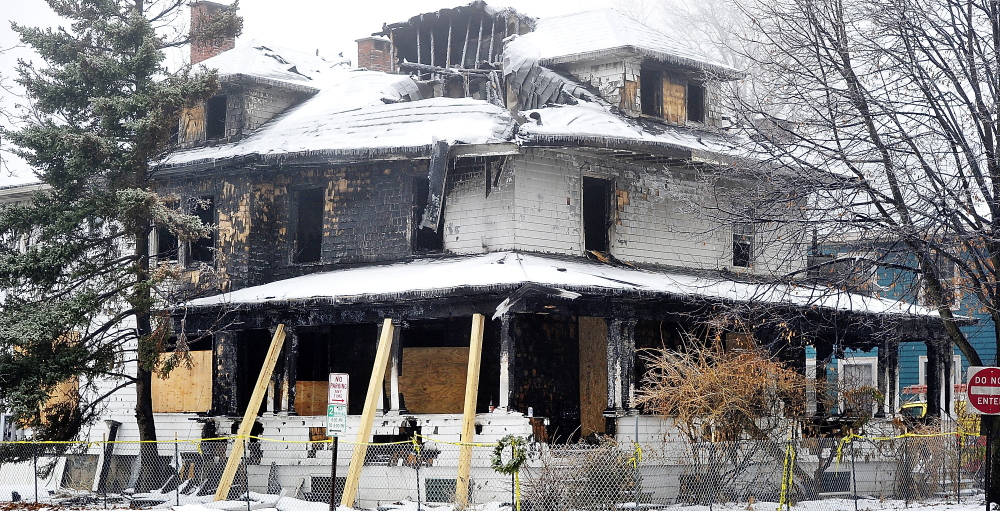A place to live is a basic building block of society, and nobody should have to sacrifice safety to get it. The apartment building fire in Portland that claimed the lives of six young people last month has drawn new attention to safety issues faced by renters here.
Addressing these concerns is the focus of a special city task force – charged with reviewing and recommending changes to Portland’s codes and building inspection process – that had its first meeting this week. This should also be the start of an overdue conversation about tenants’ rights and support services in Maine’s tightest, most expensive rental market.
Concerns have been raised that there’s no one in the group who’s a young, low-income Portland renter, like most of the people who died in the Noyes Street fire. But there is tenant representation, in the form of a lawyer from Pine Tree Legal Assistance whose background is in tenant issues. And the task force has a lot on its plate and a tight deadline for presenting suggested changes to the City Council: February, before budget deliberations begin in the spring.
Moreover, while the make-up of the task force is important, what’s really critical is focusing as much attention as possible on the major factors in the blaze: the age of Portland’s housing stock, tenants’ lack of clout in a competitive housing market and the city’s inability to carry out inspections in a timely manner. So as the task force is doing its work, tenants should be organizing and making sure that they have a role in the ongoing dialogue.
Inspections are crucial in Portland, where more than half of residents are renters and 51 percent of the housing stock was built before 1940. Fires can spread easily in neighborhoods full of old, wood-framed buildings, like the Noyes Street property, which dates to 1920. And older buildings are exempt from some provisions of fire safety codes unless they undergo extensive renovation.
Sixteen inspections of 20-24 Noyes St. were conducted between 2003 and the date of the fire. All were triggered by complaints: of excessive trash, combustible materials on the porch and a possibly illegal third-floor unit. (The city has not said whether the extra space met safety standards or whether the property had functioning smoke alarms.)
There shouldn’t have to be reports from neighbors for a building to get a safety inspection. City policy calls for routine annual inspections of the nearly 5,000 businesses and multi-story apartment buildings in Portland.
But the city’s development boom has led to a push to review building permits. So officials have fallen behind on inspecting existing structures, notifying landlords of any problems, nudging property owners to make fixes and checking on their follow-through. Indeed, roughly 300 rental properties in Portland have outstanding code violations, some dating to 2007.
Sparse municipal inspection staffing isn’t the only reason that safety issues in Portland rental properties have been going unaddressed. In a city where the rental vacancy rate has been hovering around 1 percent, a landlord who’s lax on meeting building codes can still find someone who’s desperate for a place to live and will overlook the property’s deficiencies. Tenants aren’t in a position to walk away – especially if they don’t have a lot of money and the rent is affordable.
Housing safety in Portland is a multi-pronged problem, and the city task force is addressing just a piece of it. It’s heartening to note that the dormant Portland Tenants Union is showing signs of coming back to life, such as updating its Facebook page. Tenants must band together and educate and advocate for themselves – with key policy changes on the horizon, their voices should be heard.
Send questions/comments to the editors.



Success. Please wait for the page to reload. If the page does not reload within 5 seconds, please refresh the page.
Enter your email and password to access comments.
Hi, to comment on stories you must . This profile is in addition to your subscription and website login.
Already have a commenting profile? .
Invalid username/password.
Please check your email to confirm and complete your registration.
Only subscribers are eligible to post comments. Please subscribe or login first for digital access. Here’s why.
Use the form below to reset your password. When you've submitted your account email, we will send an email with a reset code.